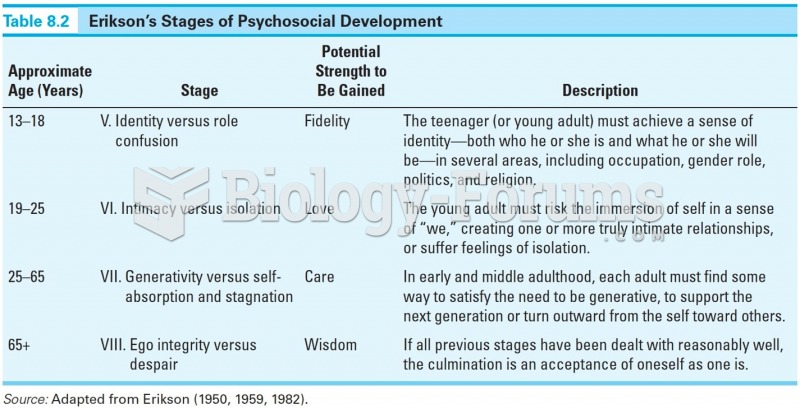|
|
|
The strongest synthetic topical retinoid drug available, tazarotene, is used to treat sun-damaged skin, acne, and psoriasis.
Medications that are definitely not safe to take when breastfeeding include radioactive drugs, antimetabolites, some cancer (chemotherapy) agents, bromocriptine, ergotamine, methotrexate, and cyclosporine.
All adverse reactions are commonly charted in red ink in the patient's record and usually are noted on the front of the chart. Failure to follow correct documentation procedures may result in malpractice lawsuits.
Bisphosphonates were first developed in the nineteenth century. They were first investigated for use in disorders of bone metabolism in the 1960s. They are now used clinically for the treatment of osteoporosis, Paget's disease, bone metastasis, multiple myeloma, and other conditions that feature bone fragility.
Most childhood vaccines are 90–99% effective in preventing disease. Side effects are rarely serious.
 Cirrhosis. Cirrhosis is characterized by a chronic deterioration of the liver, replacing healthy cel
Cirrhosis. Cirrhosis is characterized by a chronic deterioration of the liver, replacing healthy cel
 To maintain balance the bipedal pelvis has a foreshortened ilium and is broader and bowl-shaped. The
To maintain balance the bipedal pelvis has a foreshortened ilium and is broader and bowl-shaped. The





